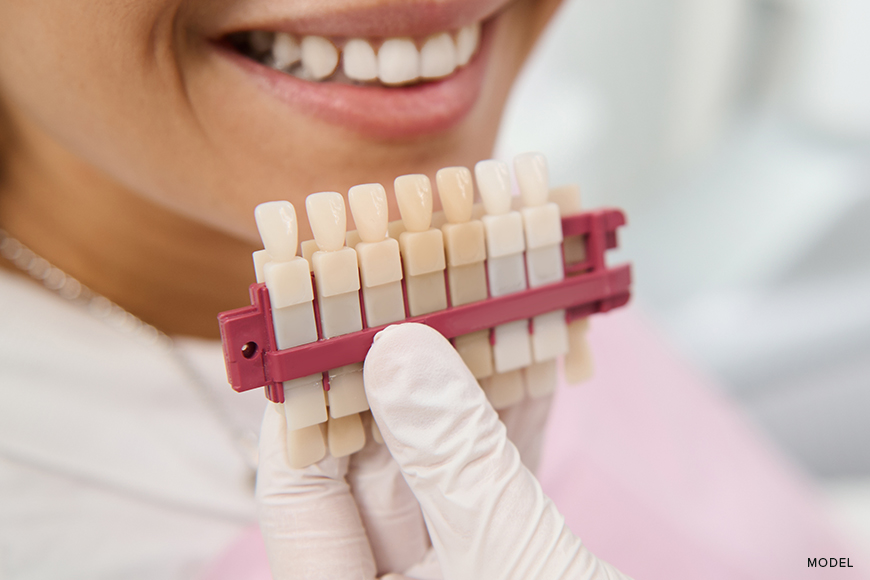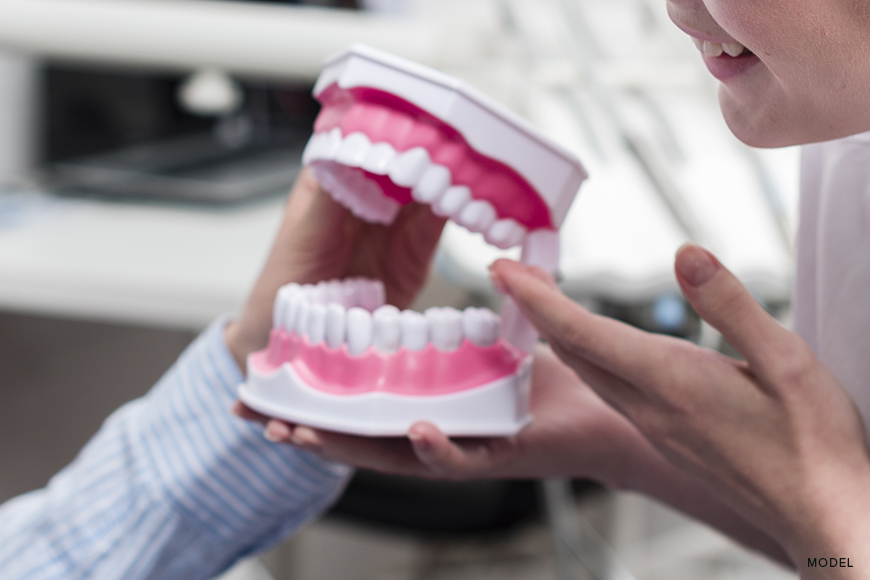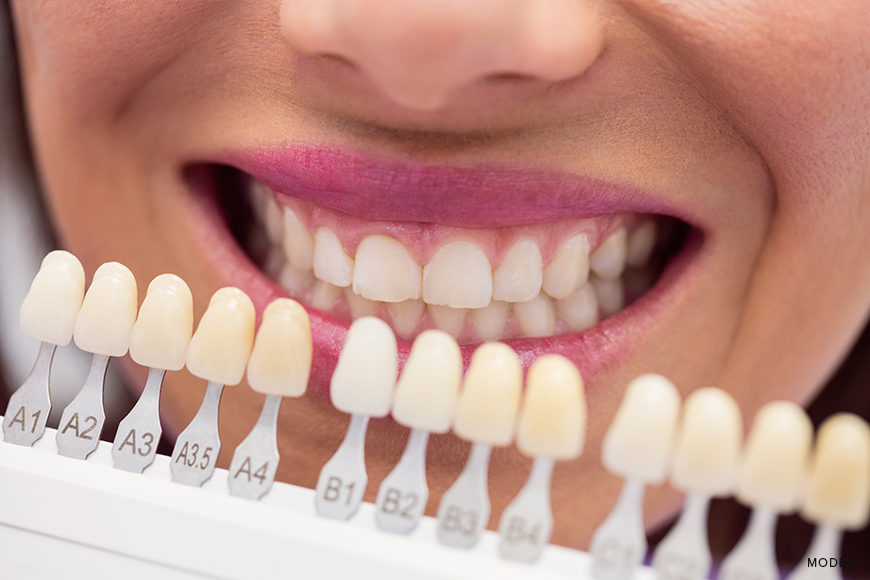Dental veneers have gained popularity in recent years, especially for people wanting to improve their smiles. Understandably so, our smile is among the things other people notice every time we try to make a good first impression.
Also called “instant orthodontics,” dental veneers are thin, tooth-colored coverings that are bonded on the front surface of damaged or discolored teeth. To accommodate the veneers, only a very small amount of tooth enamel is removed. This is unlike dental crowns, which require trimming down a larger portion of the teeth given their size.
Are Dental Veneers Right For You?
Dental veneers have to start with healthy teeth. So, a potential candidate for veneers is someone who has taken care of their oral health. However, there are considerations, that may disqualify you from the being a good candidate. Consider the items below:
- Poor oral hygiene
- Crossbite or underbite
- Teeth grinding
- Excessive structural tooth damage
- Active or recurrent gum disease
- Severe teeth crowding
- Labial version of the teeth
If you have any of these conditions, I would advise that you consult with a board-certified dentist about whether or not veneers are appropriate for you. Please remember that there are other dental procedures that can help you improve your oral aesthetics.
When Do You Need Veneers?
Depending on your case, you may get only one veneer or between four to eight veneers to create that perfect smile. Dental veneers procedure is another option to solve a number of oral aesthetic concerns such as:
- Dissatisfaction with your smile
- Chipped, cracked, or broken teeth
- Stained and discolored teeth
- Diastema (gaps in-between teeth)
- Slight unevenness or misalignment
What Are The Various Types Of Veneers that You Can Choose?
To see which one best fits you, below are the different types of veneers with their pros and cons:
-
Porcelain Veneers
has the most compatible material with the gums as it rarely causes any injuries to the tissues in the mouth. Its natural look, along with its durability, makes porcelain the most popular veneer material.
Pros
- Stain-resistant
- Most naturally-looking material with a wide selection of colors
- Very strong and durable
Cons
- Expensive and requires multiple dental visits
-
Ceramic Veneers
is made to be more custom-fit and also requires minimum preparation of the tooth. This material has minimal interaction with the surrounding tissues and is resistant to bacterial infection.
Pros
- Less preparation time
- Less invasive than porcelain veneers
Cons
- If broken off, reinstallation will be quite difficult.
-
Composite Veneers
is made of composite resin, which is a mixture of both organic and inorganic materials. It is often prepared chairside and can be quickly applied to your teeth on the very same day.
Pros
- Most affordable
- Less enamel removal
- Requires only a single visit
Cons
- Not the most durable material
- Porous material that is prone to stains
-
Lumineers
come from DenMat dental laboratory which produces this type of porcelain veneers that are thinner and more affordable. They are perfect for patients who choose not to undergo any tooth reduction as Lumineers require minimal preparation before the placement.
Pros
- Enamel removal is not needed. This makes the process reversible compared to the traditional porcelain veneers.
- Also stain-resistant but much more affordable than the traditional porcelain veneers.
Cons
- May appear too bulky for some patients since Lumineers do not require enamel removal
- Less natural-looking and have a shorter lifespan compared to traditional porcelain veneers
-
Palatal Veneers
specifically restore the posterior or the surface behind the teeth as this area can also damage the front surface. The posterior damages to the teeth are often caused by a deep bite, teeth grinding, and tooth erosion due to chronic vomiting or severe acid reflux.
Pros
- Reduce the risk of severe damage such as decay and cavities
- Better protection on the back surface of your teeth
Cons
- A dental filling is easier to undergo since palatal veneers require two appointments. However, palatal veneers are more durable.
What To Expect After Getting Veneers?
Although it is a minimally invasive procedure, there are things that you have to do and consider when you get your veneers done.
Veneers and Natural Teeth
This procedure involves filling down a portion of the enamel to give room for the veneers, which can cause a bit of pain and sensitivity. Because this is a necessary process, the preparation results in irreversible damage to the natural teeth. Therefore, there will always be a need for a restoration, either with a dental veneer or crown.
Veneers and Teeth Whitening
Dental veneers will stain, just like your natural teeth, because of the dyed foods and beverages that you consume. And it is very tempting to apply teeth whitening agents on your veneers to lift up those stains. However, their materials do not go well with DIY teeth whitening. It is still best to seek professional help for whitening your discolored veneers.
Veeners and Eating Habits
While veneers are made from durable materials, they are still prone to damage. Food that is too hard can break or crack your veneers as greater force is needed when it comes to biting and chewing them. Patients need to avoid excessive sugar consumption. The stickiness of sugar can loosen the veneers from your teeth.
Veneers and Proper Maintenance
You can take care of your veneers by brushing twice daily and flossing regularly, just as you would with your natural teeth. Aside from avoiding hard food, there are a few things that you can do to avoid damaging your veneers such as using your teeth as tools, smoking, and nail-biting.
If you are into any contact sport, you can wear a custom mouthguard to prevent any form of damage to both your veneers and natural teeth.
Make Sure You Find an Experienced Dentist
It is crucial that your veneers be done by an experienced dentist. However, choosing the right dental professional lies in the specific issue you wish to solve. Cosmetic dentists can solve cosmetic concerns, while you may visit an orthodontist for fixing your teeth alignment. If you have existing oral health concerns, then a general dentist is likely the best one to visit.
Our team of general dentists who embody a family-oriented style of dentistry can guide you through the dental veneers procedure. Get in touch with us today by calling 973-822-8003 or sending a message on our contact page.






